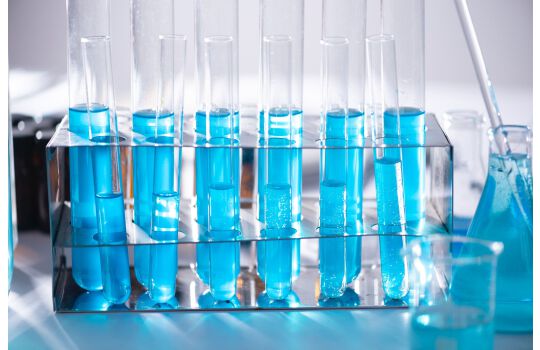Propylene carbonate (often abbreviated PC) is an organic compound with the formula CH3C2H3O2CO. It is a carbonate ester derived from propylene glycol.[3] This colorless and odorless liquid is useful as a polar, aprotic solvent.[4] Propylene carbonate is chiral but is used exclusively as the racemic mixture.
Contents
1 Preparation
2 Applications
2.1 As a solvent
2.2 Other
3 Safety
4 See also
5 References
Preparation
Although many organic carbonates are produced using phosgene, propylene and ethylene carbonates are exceptions. They are mainly prepared by the carbonation of the epoxides[4] (epoxypropane, or propylene oxide here):
CH3CHCH2O + CO2 → CH3C2H3O2CO
The process is particularly attractive since the production of these epoxides consumes carbon dioxide. Thus this reaction is a good example of a green process. The corresponding reaction of 1,2-propanediol with phosgene is complex, yielding not only propylene carbonate but also oligomeric products.
Applications
As a solvent
Propylene carbonate is used as a polar, aprotic solvent.[5] It has a high molecular dipole moment (4.9 D), considerably higher than those of acetone (2.91 D) and ethyl acetate (1.78 D).[1] It is possible, for example, to obtain potassium, sodium, and other alkali metals by electrolysis of their chlorides and other salts dissolved in propylene carbonate.[6]
Due to its high dielectric constant of 64, it is frequently used as a high-permittivity component of electrolytes in lithium batteries, usually together with a low-viscosity solvent (e.g. dimethoxyethane). Its high polarity allows it to create an effective solvation shell around lithium ions, thereby creating a conductive electrolyte. However, it is not used in lithium-ion batteries due to its destructive effect on graphite.[7]


